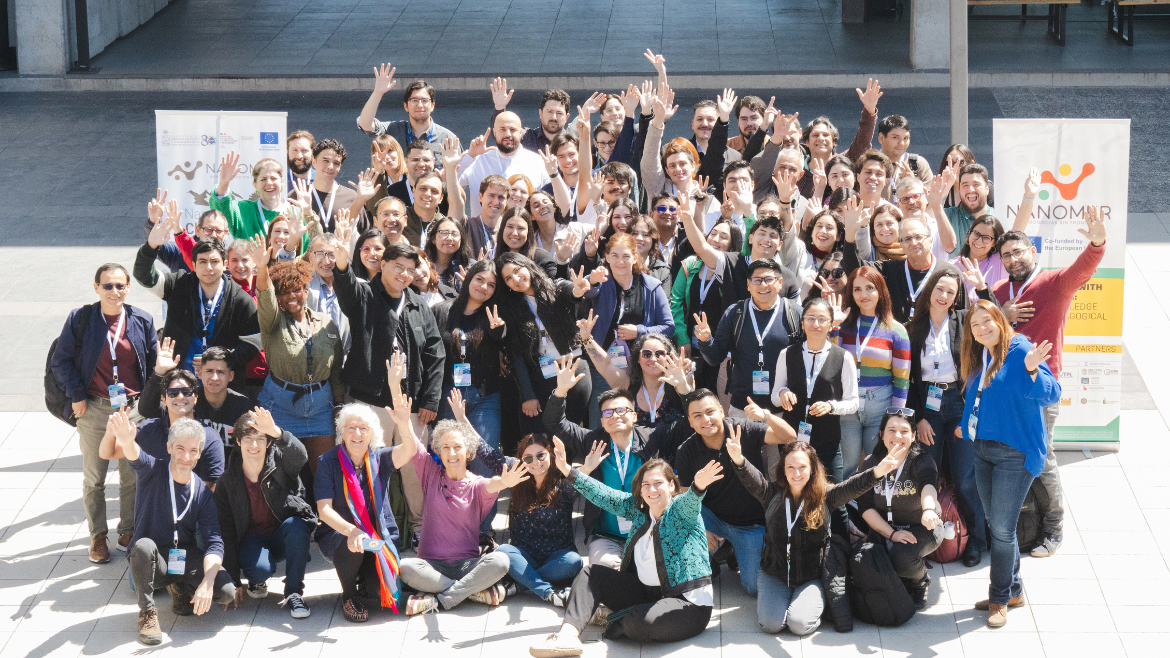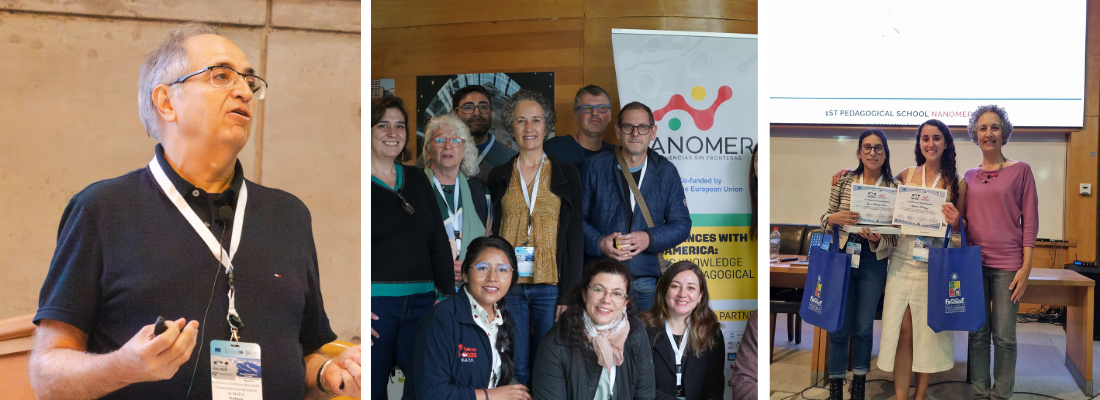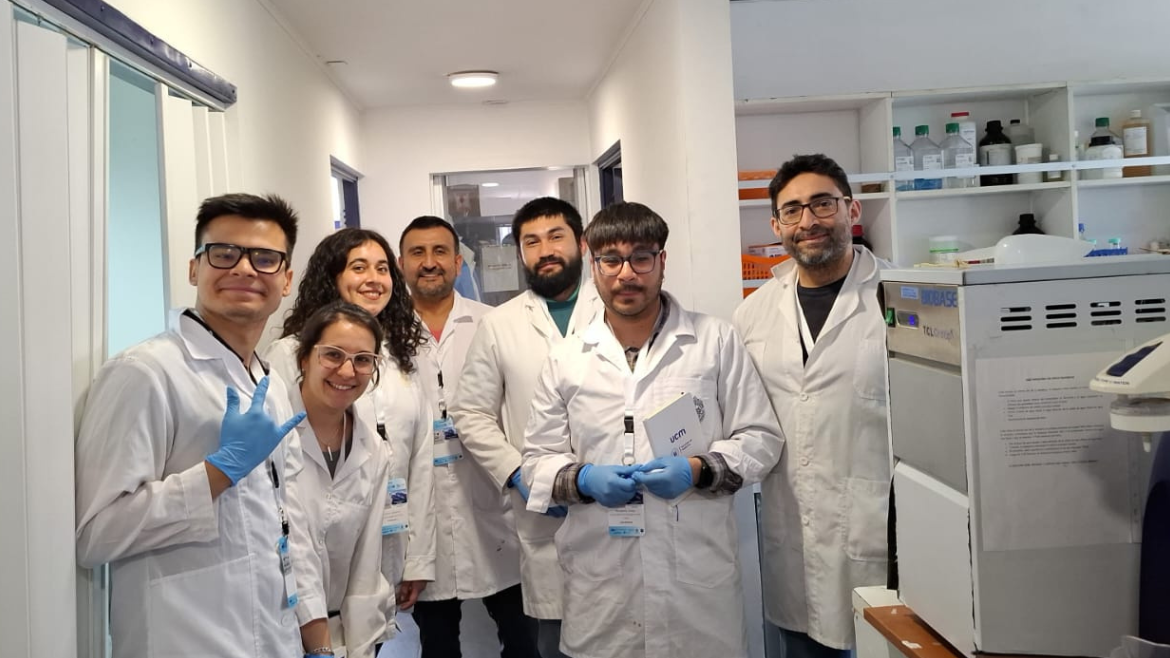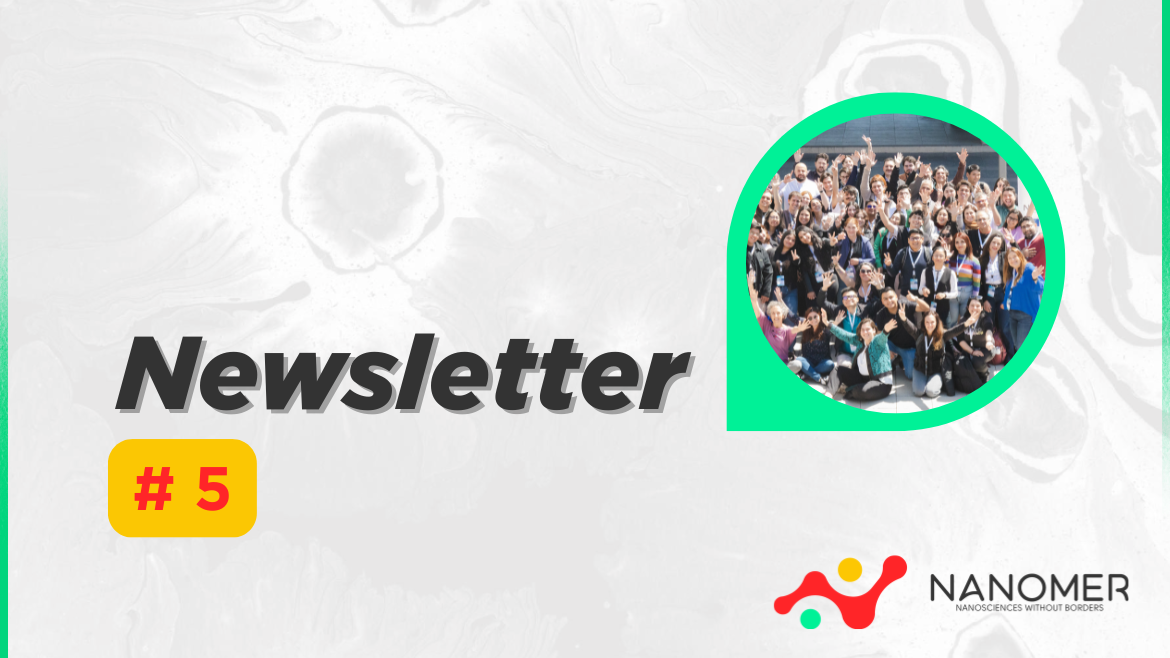Scientific training and international collaboration 14th NanoAndes School and 1st Nanomer School 2025
A week of advanced training, pedagogical innovation, and international cooperation
Between November 3 and 7, 2025, the Faculty of Chemical and Pharmaceutical Sciences at the University of Chile hosted the 14th NanoAndes International School and the 1st Nanomer School, an event that brought together 109 participants —60 students, 22 international professors, and 27 national professors— from 13 countries across Latin America and Europe. The program combined advanced scientific training with an innovative pedagogical component driven by the Erasmus+ Nanomer Project.

Objectives of the event
- Strengthen advanced training in nanoscience, nanotechnology, and nanomedicine.
- Promote innovative pedagogical methodologies for teaching nanoscience.
- Develop experimental skills through specialized workshops.
- Foster collaboration networks among Latin American and European institutions.
- Integrate approaches related to sustainability, the environment, and technological responsibility.
- Promote academic mobility within the framework of the NanoAndes Network and the Erasmus+ Nanomer Project.
Highlighted scientific activities
Over five days, an intensive academic program was carried out, including keynote lectures, hands-on workshops, and discussion spaces focused on nanoscience, nanomedicine, and the environment.
- 7 keynote lectures brought together specialists from France, Spain, Argentina, Bolivia, and Chile, who addressed topics such as nanomedicine, colloid stability, luminescent sensors, RAMAN, SERS, and nanomaterials applied to environmental challenges.
- 19 experimental workshops allowed participants to work on nanoparticle synthesis, analytical techniques (TEM, SAXS, LIBS, RAMAN, electrochemistry), biological assays, nanomembranes, digital simulations, and crystallography.
- 3 learning forums covered material characterization, nanomedicine, and sustainability, fostering technical exchange among participants from different countries.
- Poster session: students presented their research projects, and the most outstanding contributions were recognized during the closing ceremony.

Nanomer pedagogical innovation
For the first time, the program fully integrated the educational component of the Erasmus+ Nanomer Project through four pedagogical workshops aimed at instructors and students: Class Clinic, Integration Pedagogy, Science Communication for Nanoscience, and Problem-Based Learning.
These activities were complemented by daily reflection sessions focused on analyzing training experiences and teaching strategies. This articulation between scientific training and pedagogical development significantly strengthened the educational character of the event.

Regional and international impact
The 14th NanoAndes School and the 1st Nanomer School strengthened their international projection by training participants from 13 countries and expanding the NanoAndes Network through the official incorporation of Spain. The 2025 edition fostered new partnerships among institutions from Chile, France, Spain, Mexico, Argentina, Colombia, and other countries, reinforcing South–South cooperation and ties with Europe. It also helped showcase the scientific capabilities of the University of Chile and strengthened the presence of the Nanomer Project on digital platforms.
Contributions that made this edition possible
This edition was made possible thanks to the support of the Erasmus+ Nanomer Project, the French Institute of Chile, and the Faculty of Chemical and Pharmaceutical Sciences at the University of Chile. Appreciation is also extended to sponsors Merck, HES, and Genexpress; to collaborators GDNRi, UCM, and USS; and to the dedication of instructors, students, and volunteers from the NanoAndes Network. The joint efforts of these institutions made it possible to deliver an edition distinguished by its academic quality, pedagogical focus, and international impact.
Organizers:

Sponsors

We continue building a network for pedagogical innovation in nanosciences. Stay connected to learn about new resources, calls, and results.
The project continues to expand its academic and pedagogical network in nanosciences. Stay connected and take part in our activities. Subscribe to the newsletter to learn about upcoming developments and opportunities.


